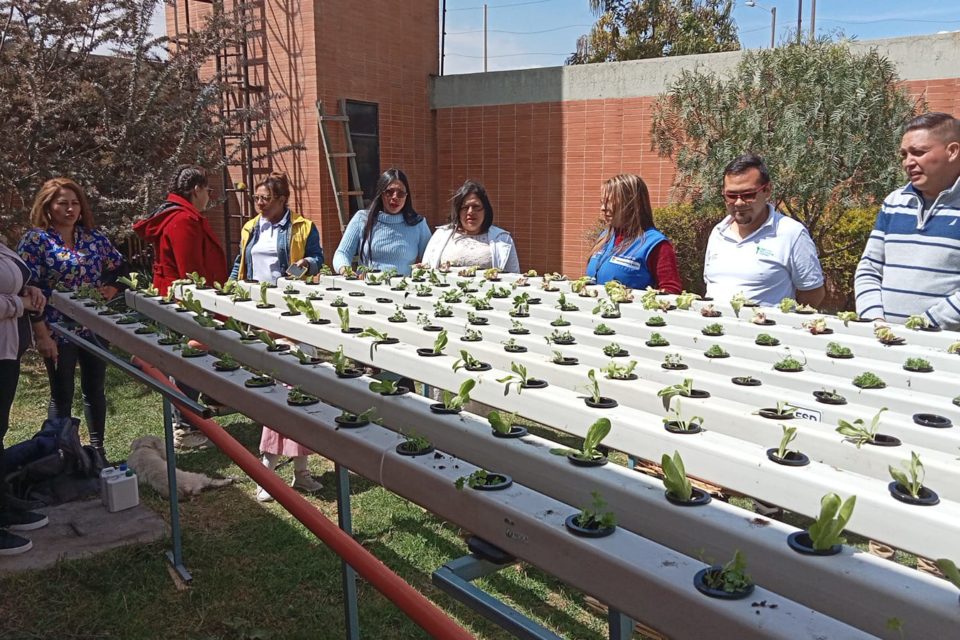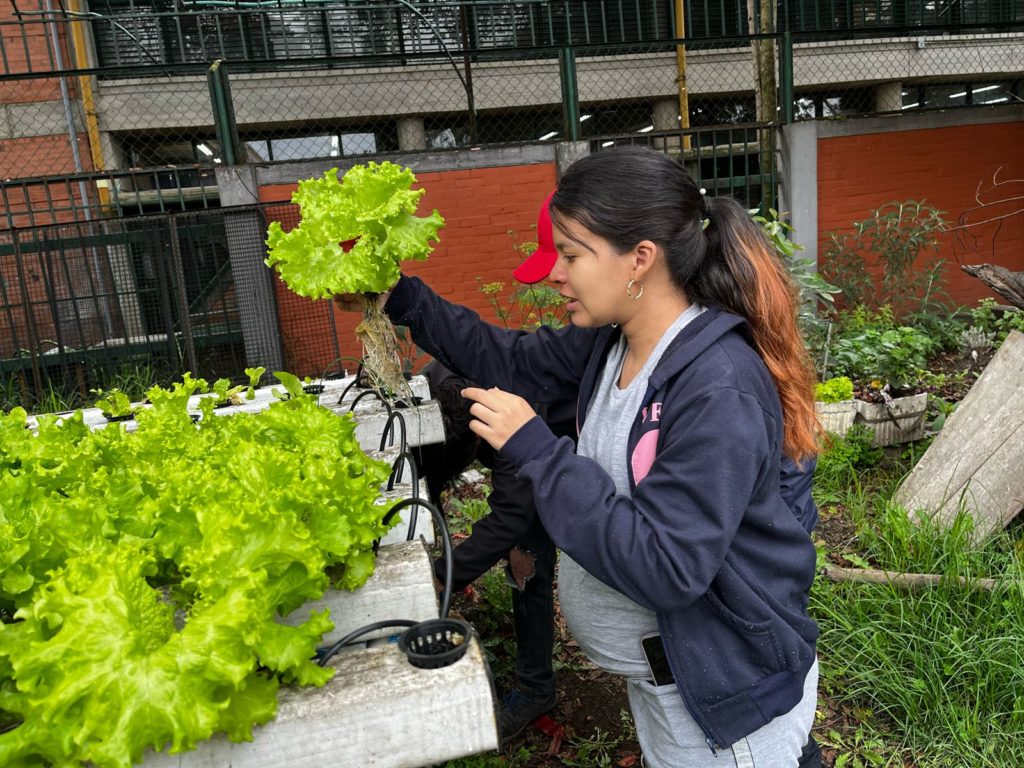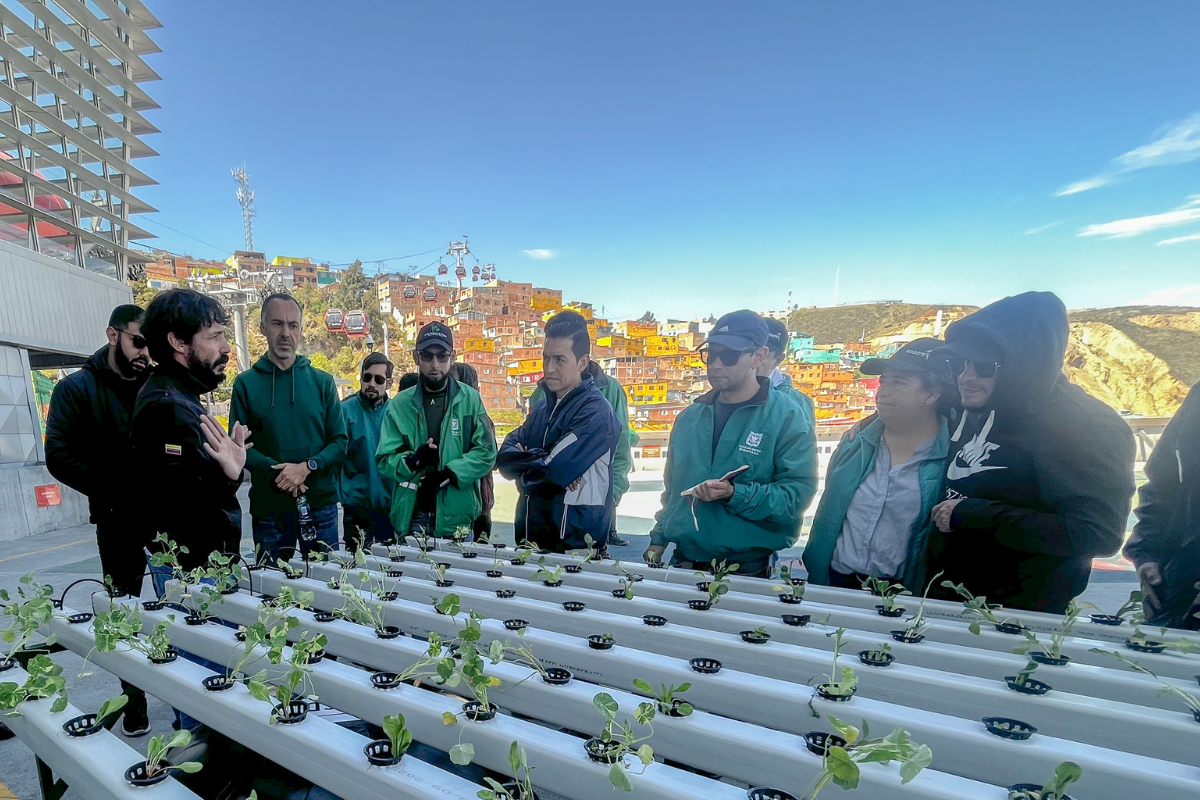After years of armed conflict, Colombia counts more than 8 million displaced people. Forced to rebuild their lives in their place of refuge, these men, women and children often have to overcome social exclusion and poverty. Two thirds of displaced people have no access to sustainable means of subsistence.
In response to this situation, FSD first launched an assistance project for mine victims, before extending its support to victims of the conflict in general. In collaboration with the Alta Consejería para las Víctimas (the local victims’ assistance unit), FSD has set up urban gardens in host centres in the Bogotá region in order to improve food security and support economic perspectives for people affected by the conflict.
Host centres for victims offer psychosocial and legal support, as well as opportunities for economic reintegration. FSD’s action falls into the latter category, offering urban gardens in six centres in the Bogotá region.

WHAT IS A HYDROPONIC GARDEN? It’s a system for growing plants without soil in a controlled environment, where the roots are directly immersed in a nutrient solution containing all the minerals they need to grow. This type of garden is particularly suited to small spaces, such as urban areas, because it optimises the use of water, does not require large areas, and significantly reduces the production time.
FSD supplies and installs the structures, then trains the beneficiaries on how to use the urban gardens during the full production cycle. These areas become not only a source of healthy food, but also a tool for social reintegration. Participants learn new skills while strengthening their sense of belonging to the community through collective work.
‘What particularly touched us was to see people like Rosa Quiñones, who were initially beneficiaries of the project, now passing on their knowledge to other members of their community’, explains Sandra Salas, member of FSD mine victim assistance team in Colombia.

A SUSTAINABLE SOLUTION: Once the hydroponic structures have been installed and the training is completed, FSD gradually withdraws, leaving the centres to manage their production independently. Some centres use the harvests to feed the residents, while others sell the vegetables and herbs to generate additional income, thus helping to finance other community projects.
One of the urban gardens supported by FSD enabled victims of the conflict to sell their lettuces at local markets. The profits not only helped to feed the people at the centre, but also to take care of stray dogs in the surrounding area – a gesture that strengthened links within the community.

Since its launch, the project has been constantly evolving to maximise its impact and help an ever-growing number of victims. At the same time, FSD remains available to support the centres in managing the gardens and answering their questions, while strengthening their autonomy.



